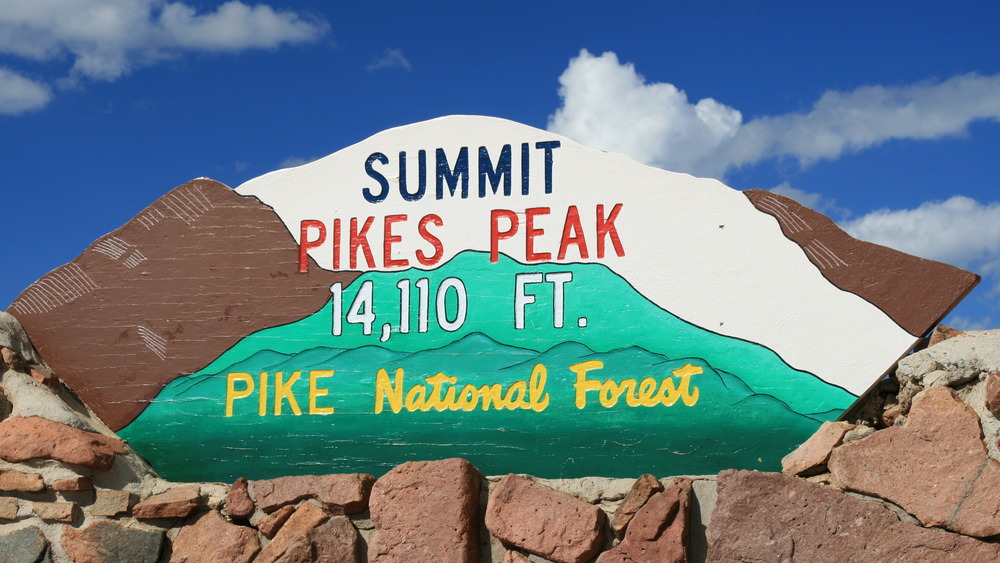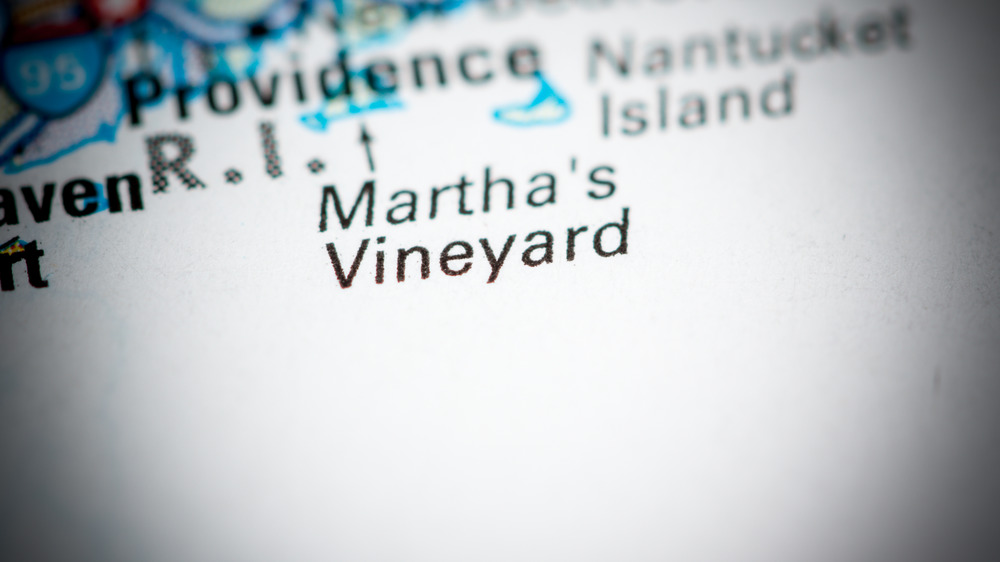The Real Reason American Place Names Don't Use Apostrophes
Most places are named after people or things they owned. But have you ever wondered why some areas — for instance, Pikes Peak in Colorado — don't have possessive apostrophes, while others, like Martha's Vineyard, do? Well, you can blame a little known organization called the U.S. Board on Geographic Names, and a federal rule banning apostrophes.
The board governs naming conventions for geographic areas. Essentially, they control how places are called in government records. The idea is to make sure all locations are uniform across all documents, so land titles or regulations don't accidentally refer to a different Jimmys Mountain. They're the people who want to make sure your maps are correct, at least in terms of names.
According to the board's website, it's been regularly scrubbing apostrophes since it was founded in 1890. There's no full reasoning behind the ruling, though there are theories. Apostrophes, when written on a map, could look like rock formations. It could also be that during the 19th century, the typography used for maps would sometimes lose the apostrophe.
The board said the most likely reason is that the U.S. Board on Geographic Names just doesn't want anyone to lay claim or possession on a natural feature. They want places to belong to everyone, and an apostrophe connotes ownership of something that should be public. The board estimated it removed around 250,000 apostrophes in its database, reported The Wall Street Journal. Other countries have their geographic name organizations and yet still have possessive apostrophes in place names.
The Board was created so cartographers would stop fighting
The US is the only country that officially has a policy banning them. And although the local government can call places whatever they want, these names won't become official unless the board signs off.
The naming board was established to prevent confusion among cartographers or mapmakers, said the Las Vegas Review-Journal. During this time, new maps were being drawn all the time, especially when the country acquired parts of the West and Alaska. People just started naming things left and right. As settlers moved into these new states, it became clear that standardized place names would prevent squabbles (some, anyway) around land and maps. The board is now the place to inquire about official characterizations of areas and changing any names. Anyone, including private companies, can request a new name for a site; they just have to follow the board's naming rules.
Of course, the naming board only really concerns itself with named places such as cities, mountains, or lakes. Grammarphobia explained that unless asked for its opinion, it's not involved in how streets, churches, schools, airports, or hospitals are called. Generally, though, most states and localities follow the board's guidelines. Hawaii even lists apostrophes as something to avoid when choosing a new name for a place.
The rule has frustrated some people. In 2013, Thurman, New York wanted to name a mountain after a 1773 settler named James Cameron, said The Wall Street Journal. The mountain has been called Jimmy's Peak locally, but they wanted it on the map officially.
Some places still have a possessive apostrophe
The Board on Geographic Names did not agree. The name Jimmy's Peak does not appear on maps; instead, it's Bald Mountain. The community of Thurman, however, continues to call it Jimmy's Peak, as The Sun reports.
That's not to say there are no apostrophes at all on American maps. The board allows apostrophes if there's a missing letter — say, for Lake O' the Woods. It's also okay for names that already contain the punctuation, like O'Fallon, Illinois, or foreign words like Coeur d'Alene, Idaho. These aren't possessive apostrophes, so they skate by.
There are other exceptions. Five places keep a possessive apostrophe, said Mental Floss: Martha's Vineyard, Massachusetts; Ike's Place, New Jersey; John E's Pond, Rhode Island; Carlos Elmer's Joshua View, Arizona; and Clark's Mountain, Oregon.
The board initially took out the apostrophe in Martha's Vineyard but returned it in 1933 after great public outcry from residents. Ike's Place got to keep its punctuation because the board felt the name Ikes was unrecognizable. The Rhode Island pond is John E's because it might be construed as John S Pond. In 1995, the board kept the apostrophe for Carlos Elmer's Joshua View since three names would confuse people, plus Joshua referred to trees anyway. And, in 2002, the board allowed the apostrophe for Clark's Mountain, to follow Lewis and Clark's journals.


